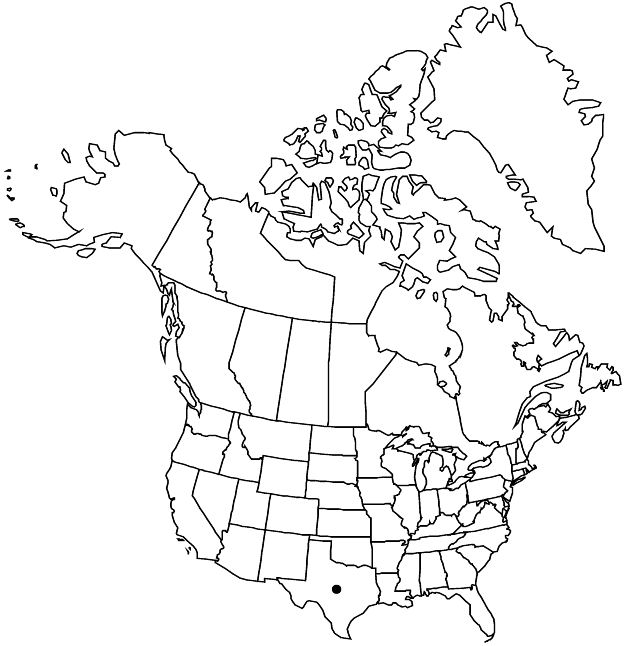Difference between revisions of "Phyllanthus abnormis var. riograndensis"
Ann. Missouri Bot. Gard. 54: 198. 1967.
FNA>Volume Importer |
imported>Volume Importer |
||
| Line 51: | Line 51: | ||
|publication year=1967 | |publication year=1967 | ||
|special status=Endemic | |special status=Endemic | ||
| − | |source xml=https:// | + | |source xml=https://bibilujan@bitbucket.org/aafc-mbb/fna-data-curation.git/src/bb6b7e3a7de7d3b7888a1ad48c7fd8f5c722d8d6/coarse_grained_fna_xml/V12/V12_779.xml |
|genus=Phyllanthus | |genus=Phyllanthus | ||
|species=Phyllanthus abnormis | |species=Phyllanthus abnormis | ||
Revision as of 20:12, 27 May 2020
Stems densely scabridulous. Leaf blades densely scabridulous on both surfaces. Bisexual cymules with 1–3 staminate flowers. Pistillate nectary glands subequal, reniform, broader than long.
Phenology: Flowering and fruiting spring–fall.
Habitat: Thornscrub, mesquite woodlands, sand, sandy loam.
Elevation: 20–200 m.
Discussion
Variety riograndensis is found only in the Rio Grande Valley from Dimmit County to Hidalgo County, generally close to the river itself. Although it should be expected from adjacent Mexico, it has not been reported from there, perhaps because of limited collecting. The only consistent differences between vars. riograndensis and abnormis are the shape of the nectary glands in the pistillate flowers and the indumentum of the adaxial leaf surface; where the two varieties grow close together in the lower Rio Grande Valley, they also consistently differ in stem indumentum.
Selected References
None.
